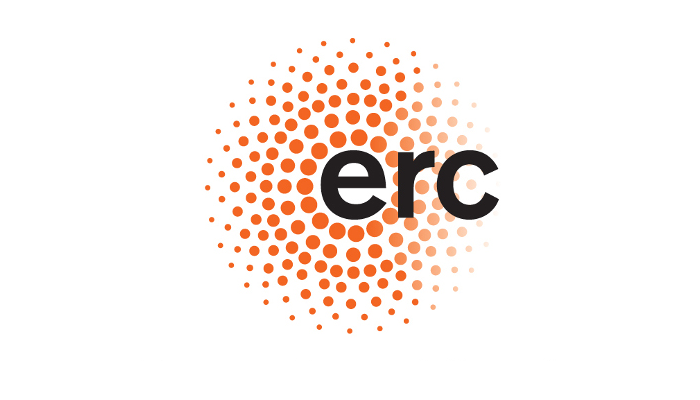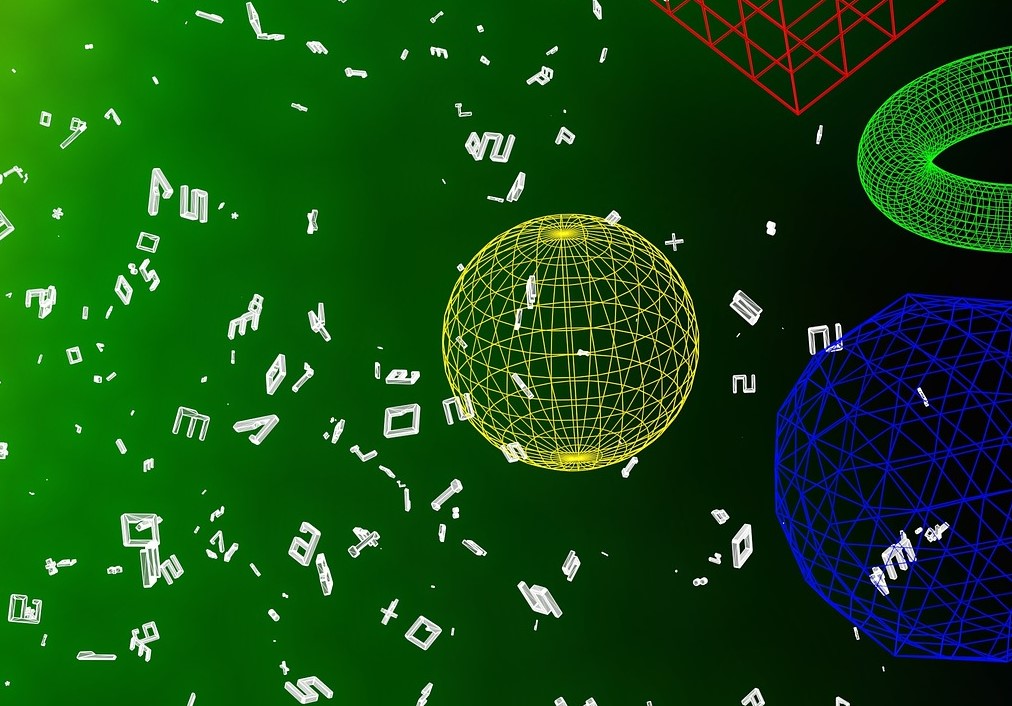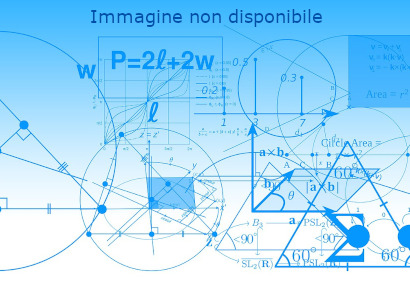New CHallenges for (adaptive) PDE solvers: the interplay of ANalysis and GEometry
Short Title: CHANGE
Principal Investigator: Silvia Bertoluzza, Tommaso Sorgente
Project Areas: Matematica Applicata

Coordinator
Annalisa Buffa
Staff
Micol Pennacchio, Daniele Prada, Tommaso Sorgente
Funding Body
ERC
Year of start/end
2016 / 2021
PDGP CODE
DIT.AD021.049 - EU.694515
Project Web SiteActivity
The simulation of Partial Differential Equations (PDEs) is an indispensable tool for innovation in science and technology.
Computer-based simulation of PDEs approximates unknowns defined on a geometrical entity such as the computational domain with all of its properties. Mainly due to historical reasons, geometric design and numerical methods for PDEs have been developed independently, resulting in tools that rely on different representations of the same objects.
CHANGE aims at developing innovative mathematical tools for numerically solving PDEs and for geometric modeling and processing, the final goal being the definition of a common framework where geometrical entities and simulation are coherently integrated and where adaptive methods can be used to guarantee optimal use of computer resources, from the geometric description to the simulation.
We will concentrate on two classes of methods for the discretisation of PDEs that are having growing impact:
isogeometric methods and variational methods on polyhedral partitions. They are both extensions of standard finite elements enjoying exciting features, but both lack of an ad-hoc geometric modelling counterpart.
We will extend numerical methods to ensure robustness on the most general geometric models, and we will develop geometric tools to construct, manipulate and refine such models. Based on our tools, we will design an innovative adaptive framework, that jointly exploits multilevel representation of geometric entities and PDE unknowns.
Moreover, efficient algorithms call for efficient implementation: the issue of the optimisation of our algorithms on modern computer architecture will be addressed.
Our research (and the team involved in the project) will combine competencies in computer science, numerical analysis, high performance computing, and computational mechanics. Leveraging our innovative tools, we will also tackle challenging numerical problems deriving from bio-mechanical applications.
Linked Products
- 2023, Journal article
A survey of indicators for mesh quality assessment
T. Sorgente, S. Biasotti, G. Manzini, and M. Spagnuolo - 2023, Journal article
Correction: Mesh quality agglomeration algorithm for the virtual element method applied to discrete fracture networks
T. Sorgente, F. Vicini, S. Berrone. S. Biasotti, G. Manzini, and M. Spagnuolo - 2023, Journal article
Mesh quality agglomeration algorithm for the virtual element method applied to discrete fracture networks
T. Sorgente, F. Vicini, S. Berrone, S. Biasotti, G. Manzini, and M. Spagnuolo - 2023, Journal article
Region extraction in mesh intersection
P. Antolin, A. Buffa, and E. Cirillo - 2023, Journal article
The virtual element method for the 3D resistive magnetohydrodynamic model
L. Beirao da Veiga, F. Dassi, G. Manzini, and L. Mascotto - 2022, Journal article
Analysis-aware defeaturing: Problem setting and a posteriori estimation
A. Buffa, O. Chanon, and R. Vazquez - 2022, Journal article
Conforming virtual element approximations of the two-dimensional Stokes problem
G. Manzini and A. Mazzia - 2022, Journal article
Fast and Exact Root Parity for Continuous Collision Detection
Bolun Wang, Zachary Ferguson, Xin Jiang, Marco Attene, Daniele Panozzo, Teseo Schneider - 2022, Journal article
Hex-Mesh Generation and Processing: A Survey
Nico Pietroni, Marcel Campen, Alla Sheffer, Gianmarco Cherchi, David Bommes, Xifeng Gao, Franck Ledoux, Riccardo Scateni, Jean-Francois Remacle, Marco Livesu - 2022, Journal article
Interactive and Robust Mesh Booleans
G. Cherchi, F. Pellacini, M. Attene, M. Livesu - 2022, Journal article
Mathematical foundations of adaptive isogeometric analysis
A. Buffa, G. Gantner, C. Giannelli, D. Praetorius, and R. Vazquez - 2022, Journal article
Meshless Approximation and Helmholtz-Hodge Decomposition of Vector Fields
G. Patane - 2022, Journal article
Optimal Dual Schemes for Adaptive Grid Based Hexmeshing
M. Livesu, L. Pitzalis, and G. Cherchi - 2022, Journal article
Polyhedral mesh quality indicator for the Virtual Element Method
T. Sorgente, S. Biasotti, G. Manzini, and M. Spagnuolo - 2022, Journal article
Polyhedron kernel computation using a geometric approach
T. Sorgente, S. Biasotti and M. Spagnuolo - 2022, Journal article
Robust numerical integration on curved polyhedra based on folded decompositions
P. Antolin, X. Wei, and A. Buffa - 2022, Journal article
Stabilization of the nonconforming virtual element method
S. Bertoluzza, G. Manzini, M. Pennacchio, and D. Prada - 2022, Journal article
The role of mesh quality and mesh quality indicators in the virtual element method
T. Sorgente, S. Biasotti, G. Manzini and M. Spagnuolo - 2022, Journal article
Virtual element approximation of two-dimensional parabolic variational inequalities
D. Adak, G. Manzini, and S. Natarajan - 2022, Journal article
Virtual elements for Maxwell's equations
L. Beirao da Veiga, F. Dassi, G. Manzini, and L. Mascotto - 2022, Journal article
Weakly imposed Dirichlet boundary conditions for 2D and 3D Virtual Elements
S. Bertoluzza, M. Pennacchio, and D. Prada - 2021, Journal article
A Large-scale Benchmark and an Inclusion-based Algorithm for Continuous Collision Detection
B. Wang, Z. Ferguson, T. Schneider, X. Jiang, M. Attene, D. Panozzo - 2021, Journal article
A p-robust polygonal discontinuous Galerkin method with minus one stabilization
S. Bertoluzza, I. Perugia, and D. Prada - 2021, Journal article
A polygonal discontinuous Galerkin method with minus one stabilisation
S. Bertoluzza and D. Prada - 2021, Journal article
A projected super-penalty method for the C1-coupling of multi-patch isogeometric Kirchhoff plates
L. Coradello, G. Loli, and A. Buffa - 2021, Journal article
A review on arbitrarily regular conforming virtual element methods for second- and higher-order elliptic partial differential equations
P.F. Antonietti, G. Manzini, S. Scacchi, and M. Verani - 2021, Journal article
Algebraic representation of dual scalar products and stabilization of saddle point problems
S. Bertoluzza - 2021, Journal article
Arbitrary-order intrinsic virtual element method for elliptic equations on surfaces
E. Bachini, G. Manzini, and M. Putti - 2021, Journal article
Benchmarking the geometrical robustness of a Virtual Element Poisson solver
M.Attene,S. Biasotti, S. Bertoluzza, D. Cabiddu, M. Livesu, G. Patanè, M. Pennacchio, D. Prada, and M. Spagnuolo - 2021, Journal article
BPX preconditioners for isogeometric analysis using (truncated) hierarchical B-splines
C. Bracco, D. Cho, C. Giannelli, and R. Vazquez - 2021, Journal article
Continuous Fuzzy Transform as Integral Operator
G. Patane' - 2021, Journal article
Coupling of non-conforming trimmed isogeometric Kirchhoff-Love shells via a projected super-penalty approach
L. Coradello, J. Kiendl, and A. Buffa - 2021, Journal article
Deterministic Linear Time Constrained Triangulation using Simplified Earcut
M.Livesu, G. Cherchi, R. Scateni, M. Attene - 2021, Journal article
Generalized Adaptive Refinement for Grid-based Hexahedral Meshing
L. Pitzalis, M.Livesu, G. Cherchi, E. Gobbetti and R. Scateni - 2021, Journal article
Immersed boundary-conformal isogeometric method for linear elliptic problems
X. Wei, B. Marussig, P. Antolin, and A. Buffa - 2021, Journal article
Localised and shape-aware functions for spectral geometry processing and shape analysis: A survey & perspectives
S. Cammarasana and G. Patane' - 2021, Journal article
Overlapping multipatch isogeometric method with minimal stabilization
P. Antolin, A. Buffa, R. Puppi, and X. Wei - 2021, Journal article
Practical Computation of the Cut Locus on Discrete Surfaces
C. Mancinelli, M. Livesu, E. Puppo - 2021, Journal article
Remarks on Poincaré and interpolation estimates for Truncated Hierarchical B-splines
A. Buffa and C. Giannelli - 2021, Journal article
Spectrum-Free and Meshless Solvers of Parabolic PDEs
G. Patane' - 2020, Journal article
A minimal stabilization procedure for isogeometric methods on trimmed geometries
A. Buffa, R. Puppi, and R. Vazquez - 2020, Journal article
BPX preconditioners for isogeometric analysis using analysis-suitable T-splines
D. Cho, Durkbin and R. Vazquez - 2020, Journal article
Exact and Efficient Polyhedral Envelope Containment Check
B. Wang, T. Schneider, Y. Hu, M. Attene, D. Panozzo - 2020, Journal article
FETI-DP for the Three Dimensional Virtual Element Method
S. Bertoluzza, M. Pennacchio, and D. Prada - 2020, Journal article
Hierarchical B-spline complexes of discrete differential forms
J.A. Evans, M.A. Scott, K.M. Shepherd, D.C. Thomas, and R. Vazquez Hernandez - 2020, Journal article
Indirect Predicates for Geometric Constructions
M. Attene - 2020, Journal article
Isogeometric analysis with C^1 hierarchical functions on planar two-patch geometries
C. Bracco, C. Giannelli, M. Kapl, and R. Vazquez - 2020, Journal article
Isogeometric mortar coupling for electromagnetic problems
A. Buffa, J. Corno, C. de Falco, S. Schoeps, and R. Vazquez Hernandez - 2019, Journal article
A Comparison of Methods for Gradient Field Estimation on Simplicial Meshes
C. Mancinelli, M. Livesu and E. Puppo - 2019, Journal article
A priori error for unilateral contact problems with Lagrange multipliers and isogeometric analysis
P. Antolin, A. Buffa, and M. Fabre - 2019, Journal article
A unified definition and computation of Laplacian spectral distances
G. Patanè - 2019, Journal article
CinoLib: A generic programming header only C++ library for processing polygonal and polyhedral meshes
M. Livesu - 2019, Journal article
HexaLab.net: an online viewer for hexahedral meshes
Bracci M.; Tarini M.; Pietroni N.; Livesu M.; Cignoni P. - 2019, Journal article
High order VEM on curved domains
S. Bertoluzza, M. Pennacchio, and D. Prada - 2018, Journal article
A heat flow based relaxation scheme for n dimensional discrete hyper surfaces
M. Livesu - 2017, Journal article
BDDC and FETI-DP for the virtual element method
S. Bertoluzza, M. Pennacchio, and D. Prada - 2022, Essay or book chapter
VEM and the Mesh
Tommaso Sorgente, Daniele Prada, Daniela Cabiddu, Silvia Biasotti, Giuseppe Patanè, Micol Pennacchio, Silvia Bertoluzza, Gianmarco Manzini and Michela Spagnuolo - 2021, Essay or book chapter
Error estimates for the gradient discretisation method on degenerate parabolic equations of porous medium type
C. Cancès, J. Droniou, C. Guichard, G. Manzini, M. Bastidas Olivares, and I.S. Pop - 2021, Essay or book chapter
The mixed Virtual Element Method for the Richards equation
D. Adak, G. Manzini, and S. Natarajan - 2022, Conference proceedings
A Graphical Framework to Study the Correlation between Geometric Design and Simulation
D. Cabiddu, G. Patané, and M. Spagnuolo - 2022, Conference proceedings
Topological Initialization of Injective Integer Grid Maps
Marco Livesu - 2021, Conference proceedings
A Geometric Approach for Computing the Kernel of a Polyhedron
T. Sorgente, S. Biasotti, and M. Spagnuolo - 2020, Conference proceedings
Geometry description and mesh construction from medical imaging
M. G. Carlino, P. Ricka, M. Phan, S. Bertoluzza, M. Pennacchio, G. Patane' and M. Spagnuolo - 2019, Conference proceedings
FETI-DP preconditioners for the virtual element method on general 2D meshes
D. Prada, S. Bertoluzza, M. Pennacchio, and M. Livesu - 2017, Conference proceedings
Heat flow based relaxation of n dimensional discrete hyper surfaces
M. Livesu - 2018, Curatorship of journal issues
Special issue on "Heat Diffusion Equation and Optimal Transport in Geometry Processing and Computer Graphics"
D. Gu, and G. Patane




